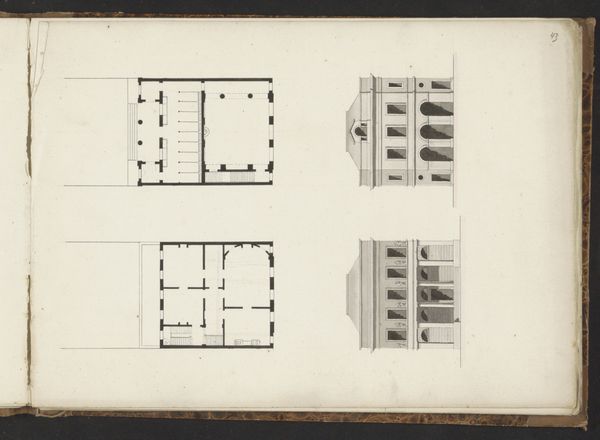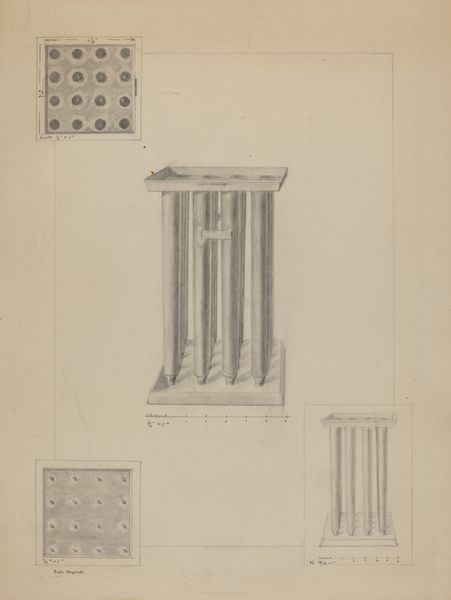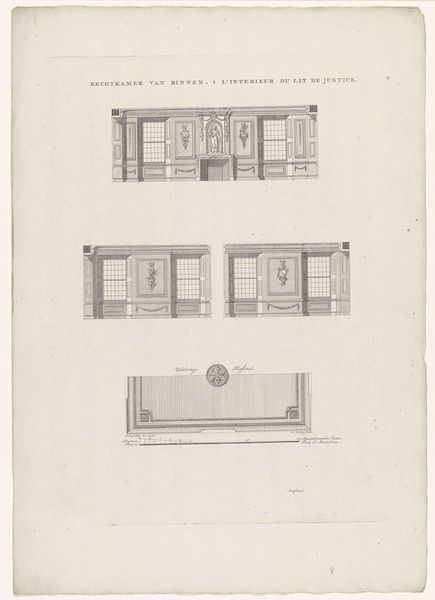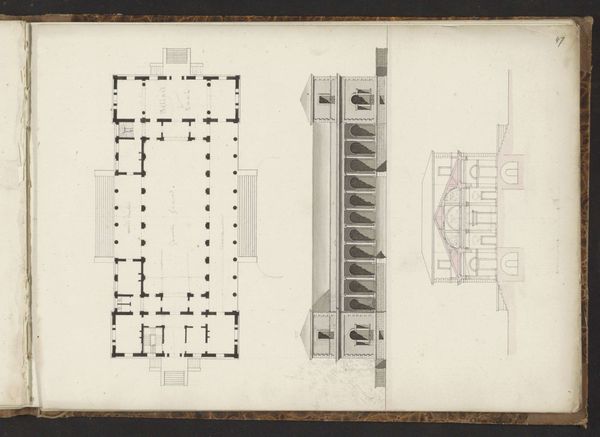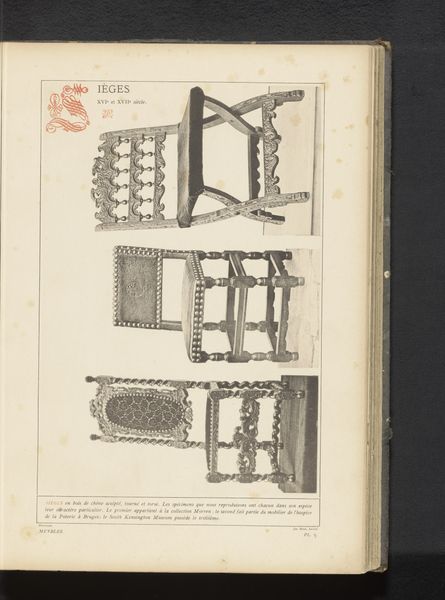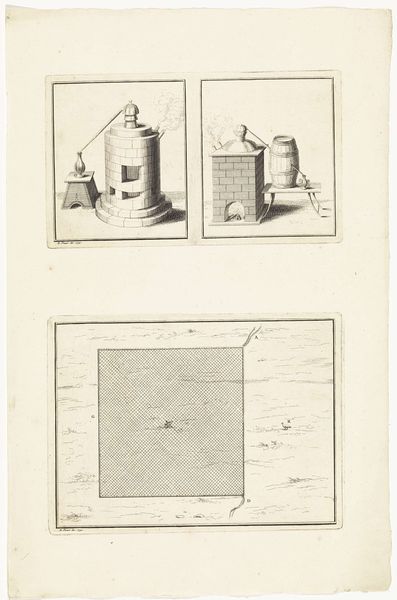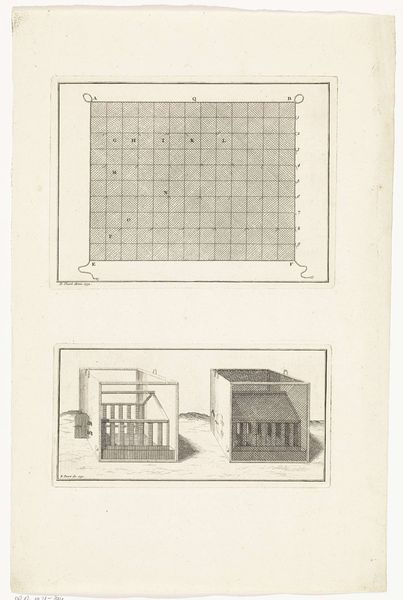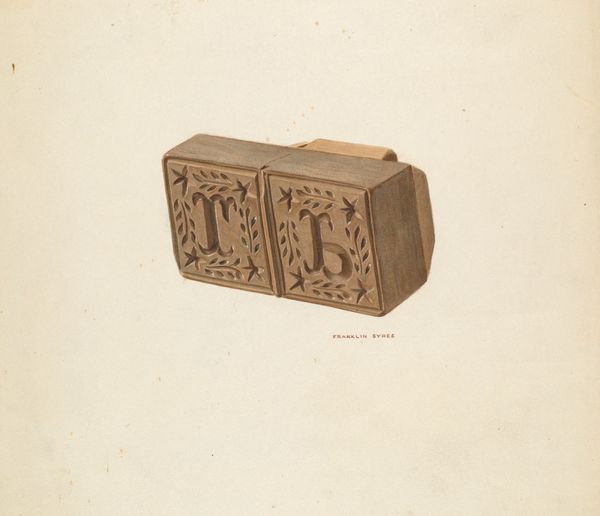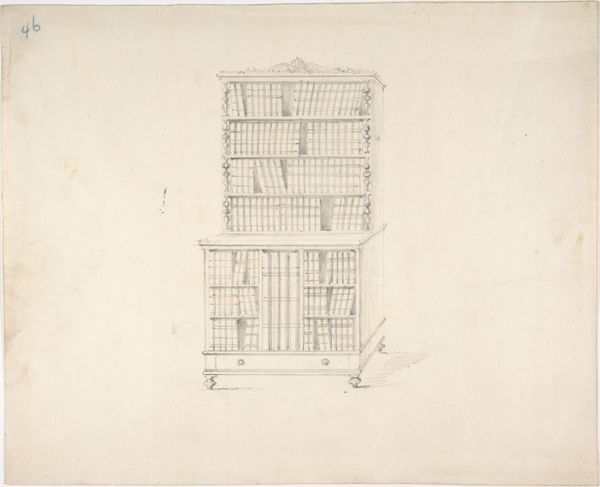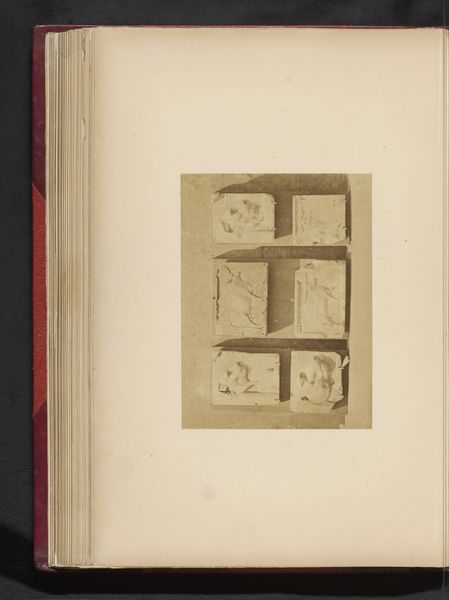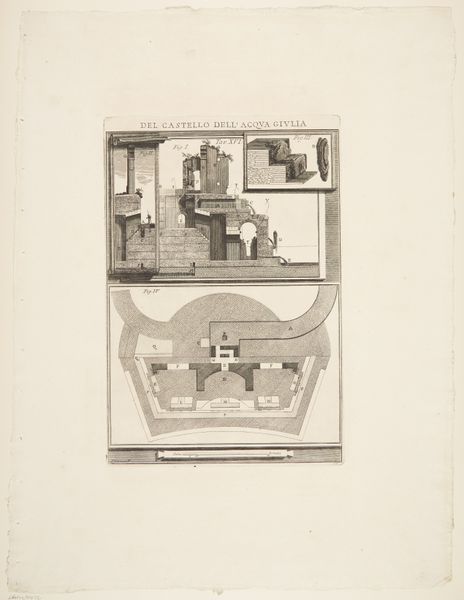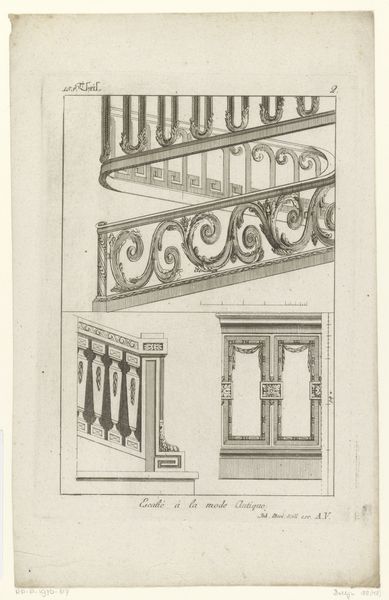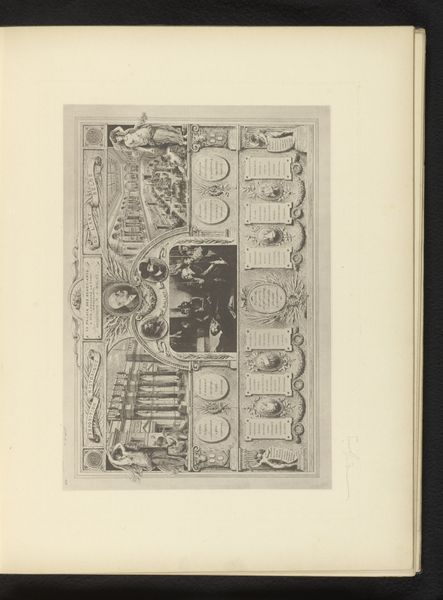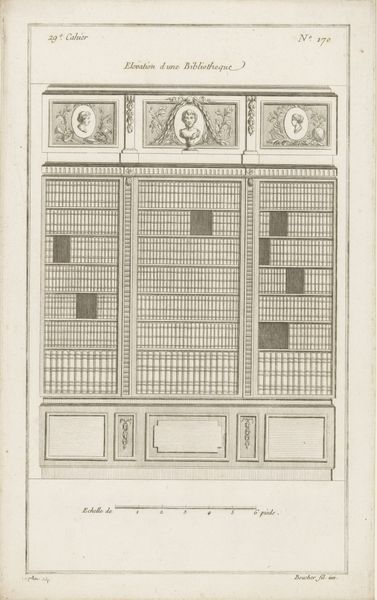
print, engraving
#
pencil drawn
# print
#
pencil sketch
#
old engraving style
#
geometric
#
decorative-art
#
engraving
Dimensions: height 229 mm, width 154 mm
Copyright: Rijks Museum: Open Domain
Curator: Here we have a print titled "Twee aanzichten van een gedecoreerde kist," or "Two Views of a Decorated Chest," created by Edouard Lièvre in 1863. Editor: My initial reaction is that it appears quite austere. The limited palette of greys makes the ornate detailing almost disappear at first glance. It presents an interesting tension between ornamentation and visual restraint. Curator: Absolutely. The artist's choice of engraving, a process of meticulously incising lines into a plate to create the image, speaks volumes about the value placed on craftsmanship during the decorative arts movement. One can easily envision artisans and engravers carefully producing designs intended for wide dissemination and consumption. Editor: Speaking of consumption, the meticulous details and geometric repetitions, seen in these two depictions of the chest—one in perspective, the other straight on—lead my eye to examine the subtle deviations in line thickness and texture. Note the semiotic interplay of curves versus sharp angles. This really makes us question whether the function of such craftsmanship really supersedes its artistic value. Curator: That's a compelling perspective. From a materialist viewpoint, it's critical to look beyond individual artistic genius and consider the socio-economic structures which promoted and shaped this art form. What labor conditions gave rise to such refinement? Editor: And the refinement extends to the overall composition. It’s not merely a technical drawing, but rather, an arrangement of light and shadow that brings an object to life. Curator: This image serves as a powerful document that showcases the intersection of art, craft, and industry in the mid-19th century, reflecting both individual skill and larger societal trends. Editor: Indeed. The starkness I initially perceived softens upon closer inspection, revealing both subtle aesthetic details and a testament to a specific moment in visual representation.
Comments
No comments
Be the first to comment and join the conversation on the ultimate creative platform.
